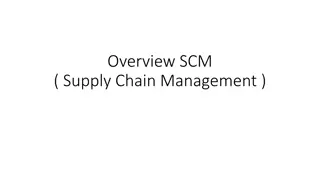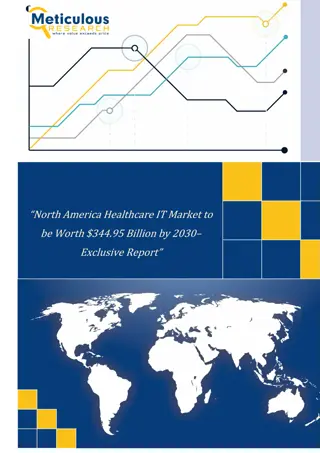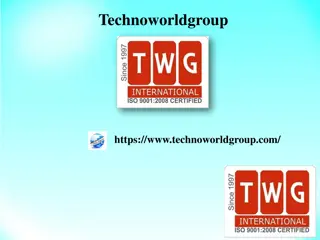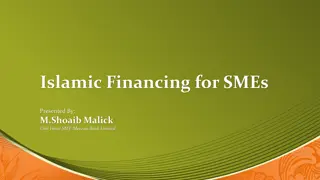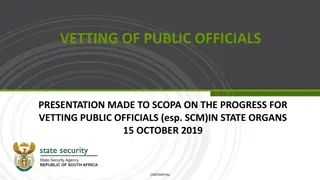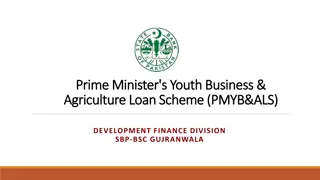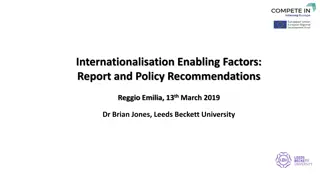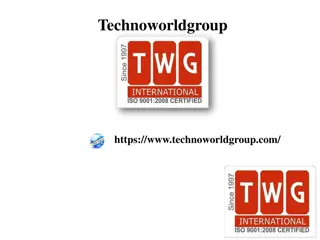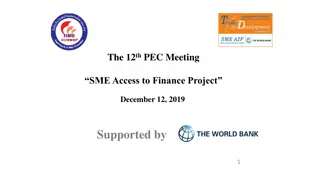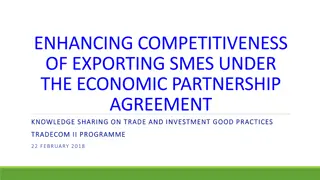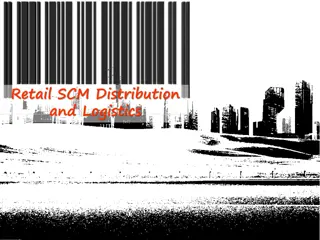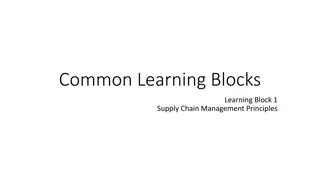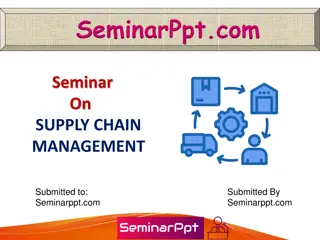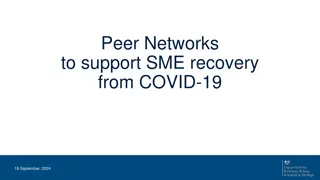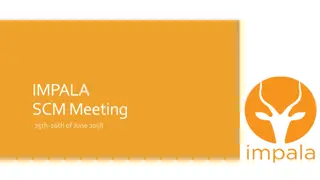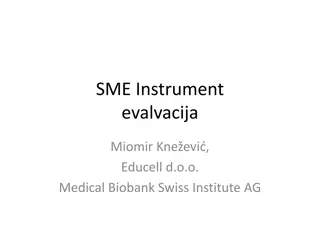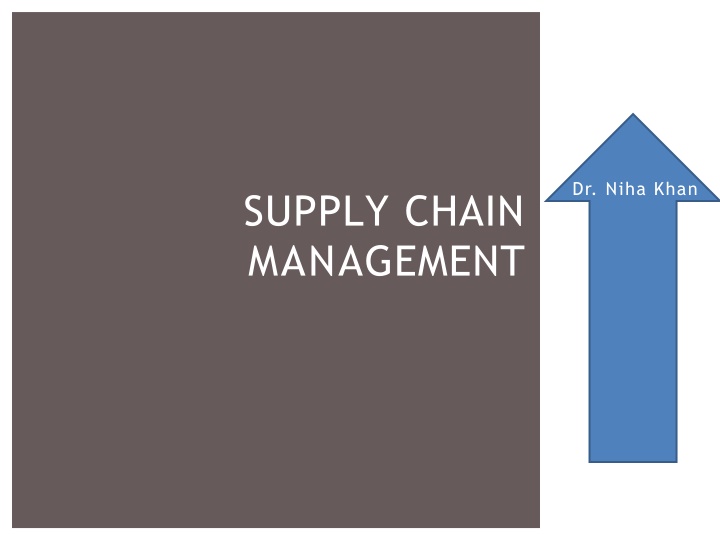
Enhancing Marketing Strategies through Supply Chain Management
Explore the vital connection between supply chain management and marketing operations. Understand how SCM processes can streamline customer feedback, reduce lead time, and improve sales forecasting. Discover the impact of customer relationship management on business profitability and success.
Download Presentation

Please find below an Image/Link to download the presentation.
The content on the website is provided AS IS for your information and personal use only. It may not be sold, licensed, or shared on other websites without obtaining consent from the author. If you encounter any issues during the download, it is possible that the publisher has removed the file from their server.
You are allowed to download the files provided on this website for personal or commercial use, subject to the condition that they are used lawfully. All files are the property of their respective owners.
The content on the website is provided AS IS for your information and personal use only. It may not be sold, licensed, or shared on other websites without obtaining consent from the author.
E N D
Presentation Transcript
Dr. Niha Khan SUPPLY CHAIN MANAGEMENT
WHAT IS SCM? Supply Chain Management is the integration of key business processes from end user through original suppliers that provides products, services, and information that add value for customers and other stakeholders. The Global Supply Chain Forum
SCM AND MARKETING Supply chains are crucial functions that allow brands to translate customer demand into product fulfillment and market delivery. As communication professionals, marketing promotes collaboration between buyers and suppliers, product developers and common systems, customers and sales to reduce lead time, streamline customer feedback, and improve sales forecasting. Similar to manufacturing environments, marketing supply chains rely on the creation, production, warehousing, and fulfillment of materials, as well as the collection of feedback for continuous refinement, all of which can be seamlessly integrated into the larger supply chain.
SCM PROCESSES Source: Adapted from Douglas M. Lambert, Martha C.Cooper, and Janus D. Pagh, Supply Chain Management: Implementation Issues and Research Opportunities, TheInternational Journal of Logistics Management, Vol.9, No. 2 (1998), p.2.
MO IN RELATION TO SCM Supplier Relationship Management Customer Service Management Provide realtime information Collaborationbetween Buyers andsuppliers Customer Relationship Management Demand Management Better tools Availability ofData Understandcustomer needs Marketing Operations
CUSTOMER RELATIONSHIP MANAGEMENT Differentiate Customers Review Corporateand Marketing Strategy Prepare theAccount/Segment Management Team OperationalSub-Processes Identify Criteria for CategorizingCustomers Strategic Sub-Processes Internally Review theAccounts Provide Guidelines for the Degree of Differentiation inthe Product/Service Agreement Identify Opportunities withthe Accounts Develop theProduct/ ServiceAgreement DevelopFramework of Metrics Implement theProduct/Service Agreement Develop Guidelines forSharing Process ImprovementBenefits withCustomers Measure Performance and Generate Profitability Reports
SUPPLIER RELATIONSHIP MANAGEMENT Review Corporate, Manufacturing and SourcingStrategies Differentiate Suppliers Prepare theSupplier/Segment Management Team OperationalSub-Processes Identify Criteria for CategorizingSuppliers Strategic Sub-Processes Internally Review theSupplier/ Supplier Segment IdentifyOpportunities with theSuppliers Provide Guidelines for the Degree of Customization inthe Product/Service Agreement Develop Product/Service Agreement and Communication Plan DevelopFramework of Metrics Implement theProduct/Service Agreement Develop Guidelines forSharing Process ImprovementBenefits withSuppliers Measure Performanceand Generate Supplier Cost/Profitability Reports
CUSTOMER SERVICE MANAGEMENT Develop CustomerService Strategy Recognize Event OperationalSub-Processes Strategic Sub-Processes DevelopResponse Procedures Evaluate Situationand Alternatives Develop Infrastructurefor Implementing Response Procedures Implement Solution DevelopFramework of Metrics Monitor andReport
DEMAND MANAGEMENT DetermineForecasting Approaches CollectData/Information OperationalSub-Processes Strategic Sub-Processes Forecast Plan InformationFlow Determine Synchronization Procedures Synchronize Increase Flexibilityand Reduce Variability Develop Contingency Management System DevelopFramework of Metrics Measure Performance
MARKETING INTEGRATION Research & Development Marketing Logistics Production Purchasing Finance Account Management Requirement Definition Requirement Definition Manufacturin g Strategy Sourcing Strategy Customer Profitability CRM T echnical Service Performance Specification Coordinated Execution Priority Assessment Account Administration Cost toserve CSM Demand Planning Capability Planning T rade-off Analysis Process Requirements Forecasting Sourcing DM
REFERENCES 1. Gary Katz. (2016). Marketing Operations class presentation and notes. Wikipedia. (2016). Marketing Operations. Retrieved from https://en.wikipedia.org/wiki/Marketing_operations Wikipedia. (2016). Supply Chain Management. Retrieved from https://en.wikipedia.org/wiki/ Supply_chain_management#Importance Steve Banker. ( 2009). Supply Chain and Marketing: A Growing Collaboration. Retrieved from https://logisticsviewpoints.com/2009/07/29/supply-chain-and- marketing-a-growing-collaboration/ Boundless. (2016). Influence on the Entire Supply Chain. Retrieved from https://www.boundless.com/marketing/textbooks/boundless- marketing-textbook/introduction-to-marketing-1/the-importance-of- marketing-22/influence-on-the-entire-supply-chain-127-7314/ Keely L. Croxton, Sebasti n J. Garc a-Dastugue, Douglas M. Lambert and Dale S. Rogers. ( n.d.). The Supply Chain Management Processes 2. 3. 4. 5. 6.

